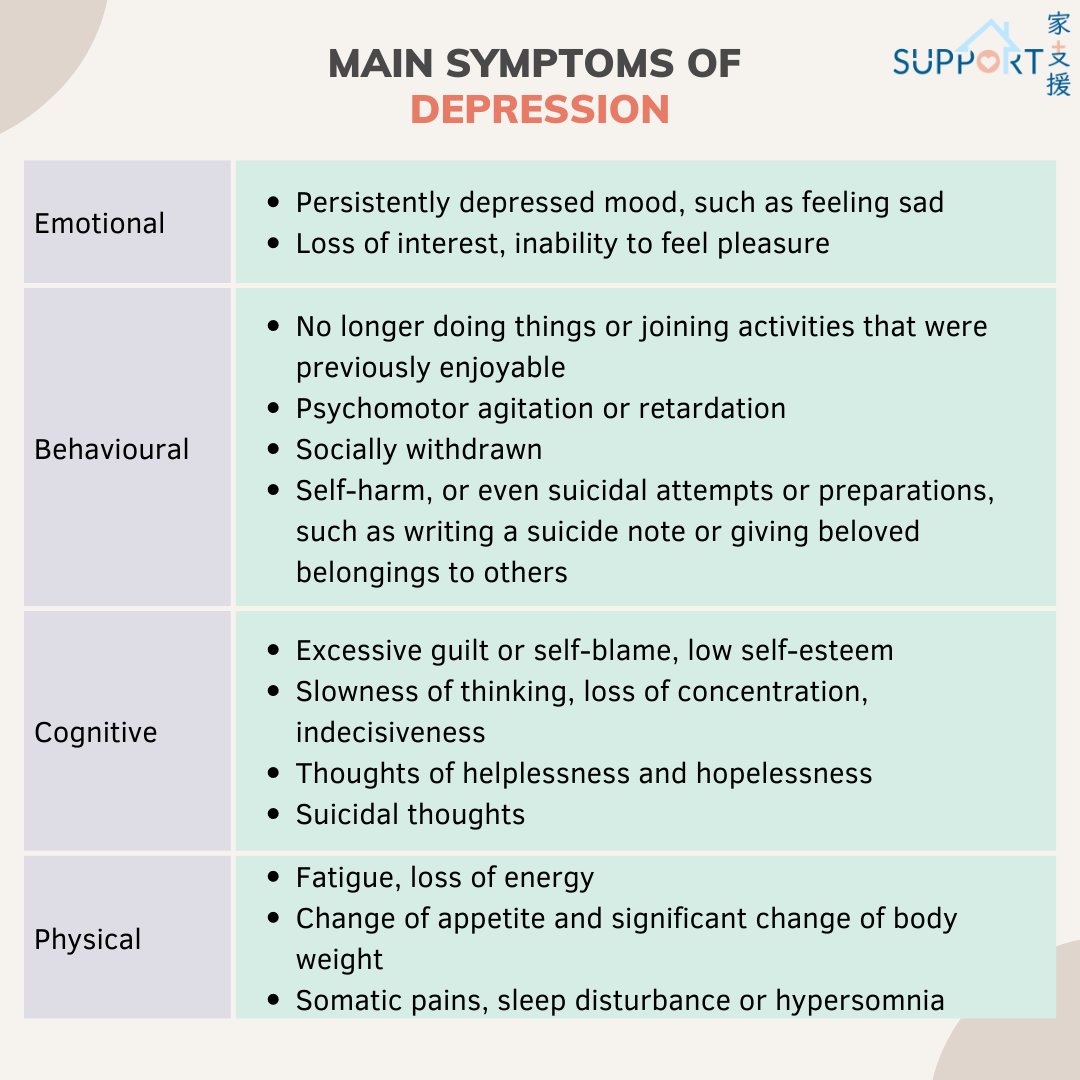To manage depression, patients may need to arrange their daily activity schedule appropriately, maintain social interactions and seek professional assistance when necessary.
Based on individual conditions, patients can consider the following suggestions to deal with depression:
1. Break the vicious cycle of depression
When you feel depressed, you tend not to see people you usually hang out with or stop doing the things you used to enjoy. However, avoiding other people will only reduce the chances of creating meaningful or pleasant experiences. You will in turn focus more on your worries, causing the depressive mood to persist. The first step of change is to do something different. Try to set some small goals for yourself. Do not wait until you feel good enough to take action. Take action to make yourself feel better.
2. Plan your daily schedule to keep yourself active
Physical problems may hinder your everyday activities, but you can still choose to fulfil some simple goals, and gradually take part in some activities to restore the previous everyday life.
- Do not wait until you are happy enough to take any action. Having depressive symptoms may mean that you would need to wait for a long time before you take the first action. Take the first step whenever possible
- Try to find pleasure in simple everyday activities, such as calling friends for a chat, sitting in the garden, taking a hot bath or shower, eating your favourite food or watching your favourite TV show
- Plan what to do every day. Set realistic goals that are not too difficult. For example, you may find it too difficult to concentrate on reading a book, but reading a magazine or watching a TV show may be more doable. It may be easier to walk in a quiet garden than in a busy shopping mall.
- If the activity is too complicated to be done in one go, divide it into several parts, such as sitting down and doing some stretching exercises, walking around the home or going out for a walk. If your condition allows, you may take a walk in the park. If you do not have enough physical strength or confidence, you may invite some relatives or friends to keep you company.
- Write down your plan and check the items you have completed. Stick to your plan as much as possible but allow enough room for flexibility. If you miss an item, proceed to the next one or reschedule it to another day.
- Rate the sense of enjoyment and accomplishment each activity brings (0-10 points). For example, in terms of fun, 10 points means you really like the activity and 0 points means you do not like it at all. You can rate the level of fun and accomplishment of every activity on a scale of 0-10. There are tasks (such as clearing drawers or processing files) that may not be very enjoyable (2 points for fun) but give a high sense of accomplishment (10 points for achievement). By rating the activities, you can remind yourself of what to spend time on and observe what makes you happy or gives you a sense of achievement. In the future, you can try to spend more time on the high-scoring activities
3. Try to arrange outdoor activities
Outdoor activities help improve your physical and mental health. “Outdoor” includes all outdoor green spaces, such as country parks, gardens and parks in the city. Contact with nature can help you relax, reduce stress and improve your mood.
4. Keep a diary
Keep a dairy of things you have achieved, things that make you happy and things to be grateful for. This would let yourself realise there is more around you to treasure and enjoy. You can also practise writing down your negative thoughts in your diary (for example: “My illness will not get better.”) and write another sentence that is closer to reality next to the previous sentence (for example: “Even with the illness, I can still live well.” Or “My physical discomfort can be relieved.”) This can help you adjust your emotions when negative thoughts pour in.
5. Keep in touch with your family and friends
Share your personal experience with people you trust, so that you know someone is willing to listen to your problems and care about your condition. You can also make use of different hotlines to talk about your problems and concerns in a confidential manner and reach out for help when necessary.
6. Seek professional assistance
When your depressive symptoms significantly affect your daily functioning, you may need to reach out to healthcare professionals for assistance. They will provide suitable treatments and recommendations based on your conditions to help you manage the symptoms more effectively.


